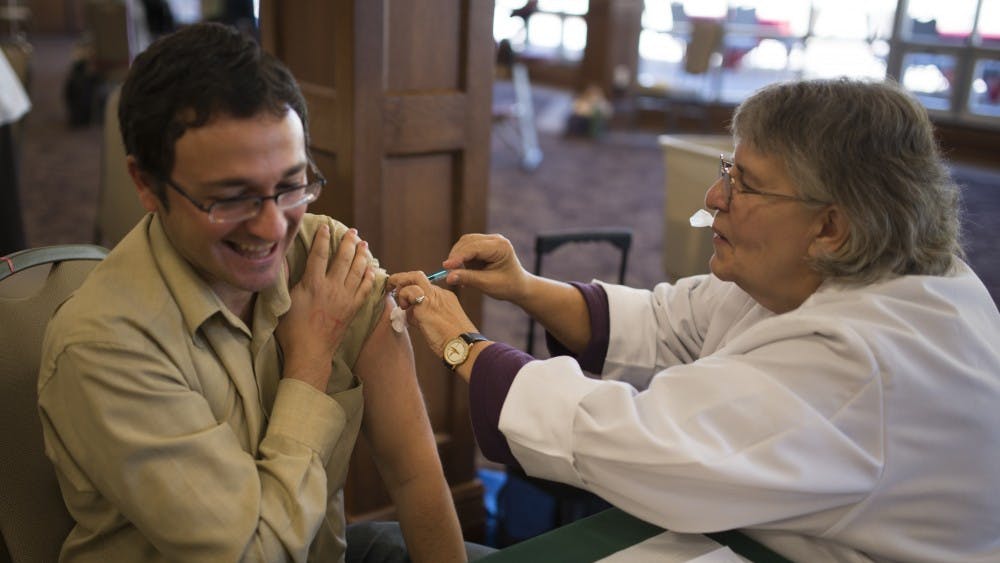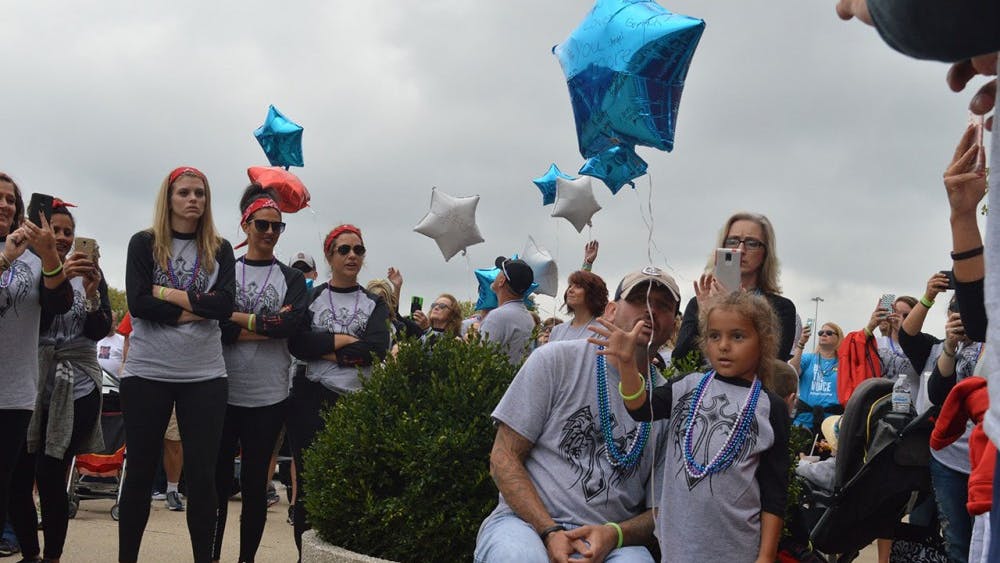Last semester, an IU-South Bend student was visiting the Bloomington campus and jumped from the third floor of Ashton Johnston in a suicide attempt.\n“Several girls on the second floor heard the window breaking and saw him falling,” Ashton Student Government President Dan Sloat said. “They were very traumatized.”\nThe student told his friends that he would jump from the window but was not taken seriously, Sloat said.\n“He was probably going through some hard times,” Sloat said. “Because you cannot be thinking rationally when you do something like that.”\nCases such as this are not uncommon on college campuses. Relationship problems, followed by general stress and anxiety, are the most common mental health problems among college students, said Nancy Stockton, director of Counseling and Psychological Services.
7 to 8 percent of students visit CaPS annually\n“It is between the ages of 18 to 25 that we see the onset of mental health problems,” said Bernice A. Pescosolido, distinguished professor of sociology and director of Indiana Consortium for Mental Health Services Research. \nPeople often do not recognize that they have a mental health problem, Pescosolido said, and this keeps them from getting help when they need it. But more importantly, the stigma associated with seeking diagnosis for a mental health problem prevents people from doing so.\n“If you find someone depressed, you tell them they just need to pull up their boots; but would you tell the same thing to someone with diabetes? It’s as if people have control over it – they don’t realize it needs a cure,” Pescosolido said. \nAnybody can feel depressed for a day or two, Stockton said. But a sustained low mood, feelings of hopelessness, isolation from friends, lack of enjoyment, sleep disturbance and appetite disturbance are signs of depression.\n“7 to 8 percent of the student body, in general, comes to us every year,” Stockton said. “It’s difficult to estimate the number that needs help and don’t avail it, but it would be at least ten percent.”
Fighting stress\nThe approaches people take to deal with their problems are interesting, Sloat said.\n“I know someone who was having a hard time dealing with relationship issues and self-image issues, and she started writing Facebook notes on it,” he said. \nStigmas exist for a reason, and people are sometimes justified in holding a stigma for counseling, Pescosolido said.\n“The stigma that people are concerned about is having their identity discovered, in that they are having a mental health problem,” she said. “It affects every part of their life, from their relationship and hospital records and treatments to their jobs.”\nPescosolido said there is an urgent need to bring down the stereotypes associated with people who have mental health problems.\n“Twenty-five years ago people avoided people who had cancer. It’s a similar case with people with mental health problems today,” she said. “There needs to be a change in the way people think about these problems. Lesser depictions in the media of people with mental health problems being serial killers would help.”\nThe federal government recently launched a major campaign to reduce the stigma associated with counseling, targeted especially at college students, Pescosolido said.\n“Earlier colleges were in denial about the problem and they often found students leaving universities,” she said. “For the first time, we are seeing a major effort in colleges to address the problem. Efforts are being made to spread correct information about the nature of mental health problems.” \nReluctance to get help\nCAPS is an important resource for anybody on campus needing help. If you think your friend needs help, be honest and straightforward and express your concern to them, Stockton said.\n“A lot of times, people don’t turn to counseling because they lack the motivation that something could help them,” freshman Mary Kelley said. “They don’t think anything could help them.” \nStudents are also concerned about confidentiality.\n“When it comes to me, I don’t care about what people think,” freshman Holly Brune said. “Yes, it’s a big step to get help, but you need to realize that it’s going to help you in the long run.”\n“A lot of people are not aware about confidentiality and privacy laws, so sharing a problem with someone is a big deal for them.”\nJunior Rekha Philip said she wouldn’t want to go to a counselor even if she had a problem. \n“Maybe it’s just me but ... I’d rather go to my friends and family, rather than talking to somebody I don’t even know,” She said. “I feel that if you are a strong person, you want to try to solve your problems on your own.”\nStockton disagrees.\n“It takes courage to acknowledge one’s problems,” she said. “It’s an act of strength, not weakness.”





